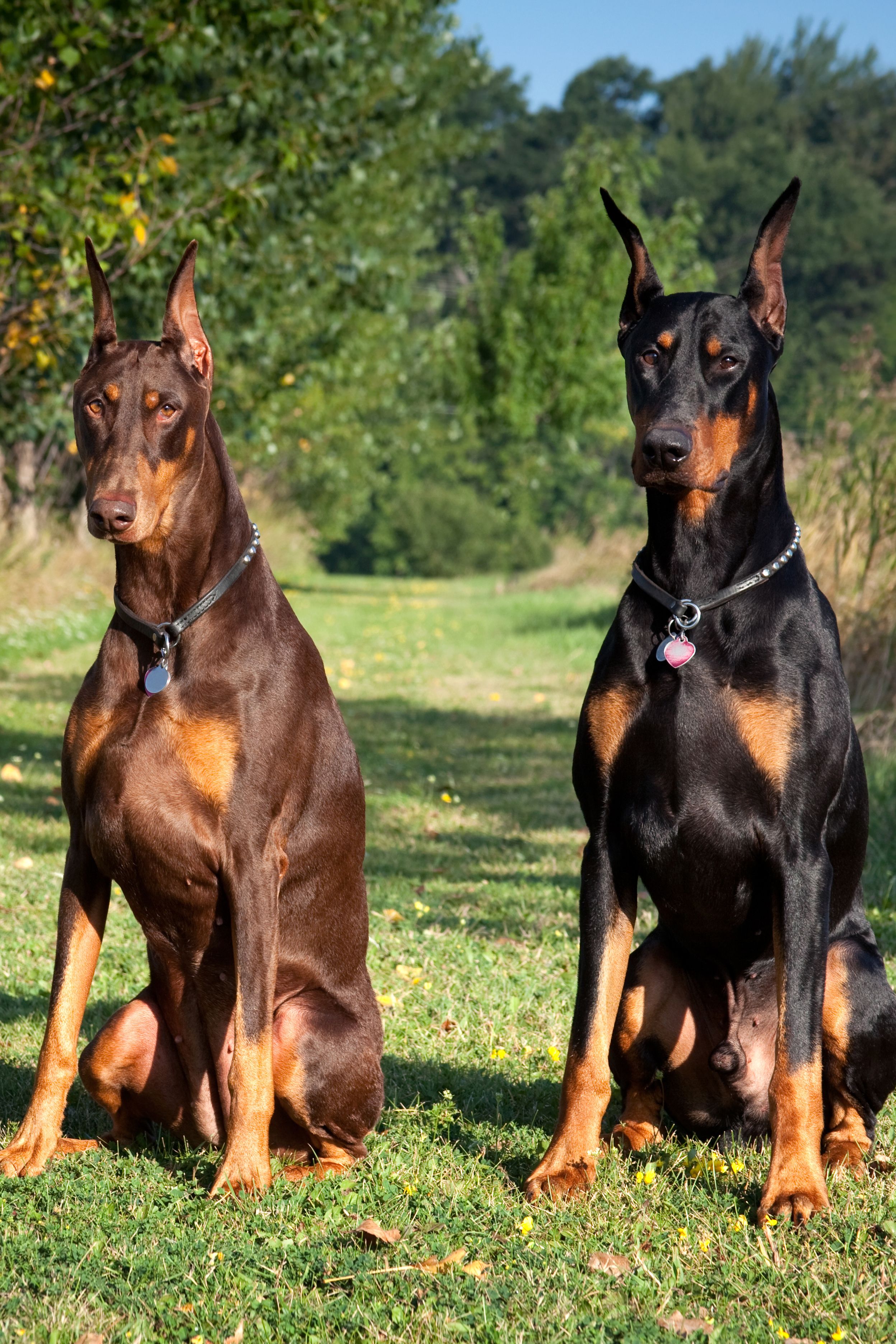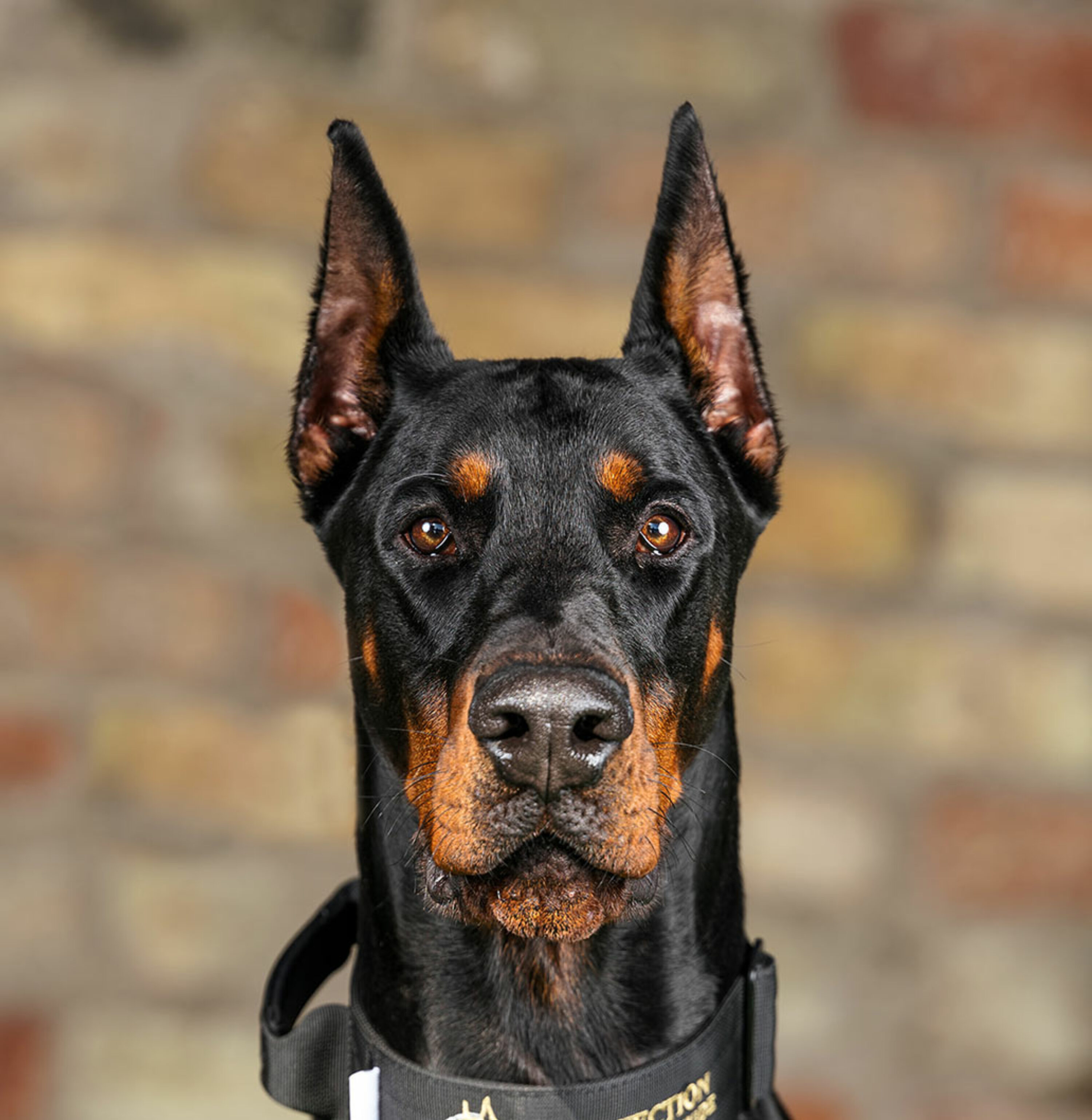How Doberman Pinschers Protect and Care for Their Families
Doberman Pinschers are renowned for their loyalty and protective instincts, making them ideal family companions. This essay critically examines the complexities of their protective and nurturing behaviors, exploring the evidence and perspectives surrounding their unique role within family units.
Protective Instincts: A Natural Deterrent
Doberman Pinschers possess a strong prey drive and territorial instincts, making them naturally inclined to protect their families from perceived threats. Their formidable appearance and imposing demeanor often deter potential intruders, creating a sense of security within the household. Notably, Doberman Pinschers are not inherently aggressive but rather respond to situations they perceive as dangerous to their loved ones.
Training and Socialization: Essential for Responsible Protection
While their natural protective instincts are valuable, it is crucial for Doberman Pinschers to receive proper training and socialization from an early age. Uncontrolled aggression or fearfulness can undermine their protective role and pose a danger to both the family and the community. Positive reinforcement, consistent boundaries, and exposure to various environments are vital for developing a stable and responsible canine companion.
Nurturing and Affection: A Balancing Act
Doberman Pinschers are not merely protectors but also deeply affectionate with their family members. They thrive on attention, cuddles, and playful interactions. Their strong bond with their humans extends beyond protection, fostering a sense of companionship and overall well-being. It is essential to balance their protective tendencies with opportunities for nurturing and emotional connection.
Potential Challenges: Managing Fear and Aggression
While Doberman Pinschers are typically good-natured and loving, certain situations can trigger fear or aggression. Loud noises, sudden movements, or perceived threats to their family members can provoke a protective response. It is crucial for owners to understand the potential triggers and provide a safe and controlled environment for their pets. Professional training and behavioral interventions may be necessary in some cases to manage these challenges.
Comparative Perspectives: Breed-Specific Traits vs. Individual Variations
It is important to recognize that not all Doberman Pinschers are the same. While certain breed-specific traits contribute to their protective nature, individual experiences and temperaments can vary significantly. Some Dobermans may be more independent or less protective than others, while some may exhibit higher levels of aggression or fearfulness. Owners should tailor their training and care strategies accordingly, respecting the unique personality of their canine companion.
The Significance of Responsible Ownership
Owning a Doberman Pinscher is a significant responsibility that requires a high level of commitment and understanding. Potential owners must carefully consider their lifestyle, home environment, and experience in handling protective breeds. Responsible ownership practices, including training, socialization, and veterinary care, are essential for ensuring the well-being of both the dog and the family it protects.
Doberman Pinschers play a complex and multifaceted role within their families, providing both protection and care. Their natural protectiveness, combined with proper training and socialization, makes them effective deterrents against threats. However, it is crucial to balance their protective instincts with opportunities for nurturing and emotional connection. Understanding the potential challenges and embracing responsible ownership practices are essential for harnessing the unique qualities of Doberman Pinschers while ensuring the safety and well-being of both the family and the dog itself.
Do French Bulldogs Get Along With Other Dogs?
Are Australian Mist Cats Rare Outside Australia?
The Difference Between American Bobtails And Other Bobtail Breeds



